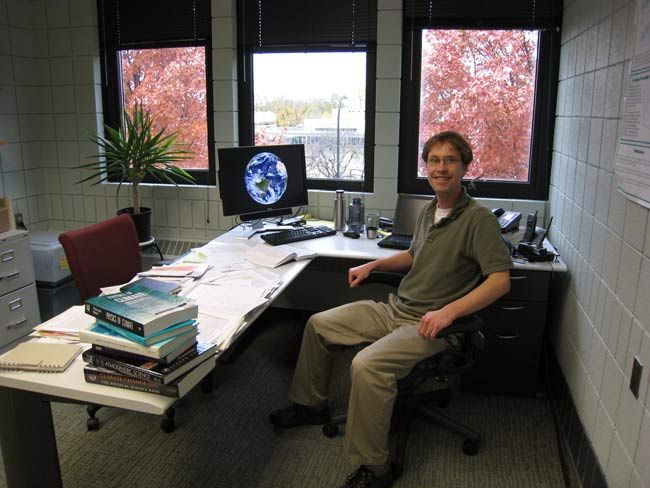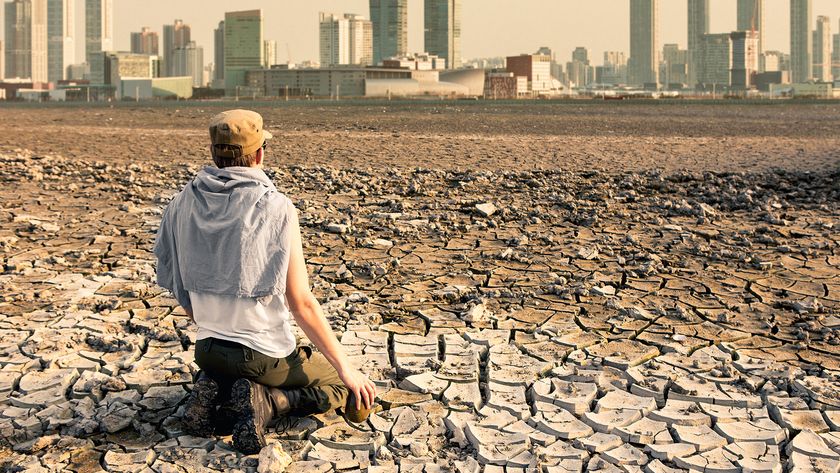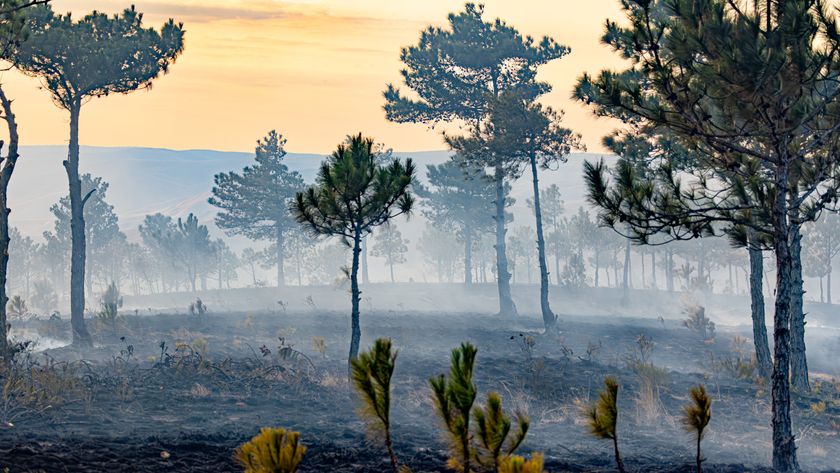Eying the Melting Ice: An Earth Scientist's Tale

This ScienceLives article was provided to LiveScience in partnership with the National Science Foundation.
Warming climate will likely have its most dramatic impact on the physical, chemical, and biological processes occurring at high latitudes. A significant climate system component, changes to the snow and ice-covered cryosphere, can result in feedbacks that affect both regional and global climate dynamics. Mark Flanner studies cryosphere-climate processes to better understand possible effects of these dynamic interactions on the environment. Flanner, an assistant professor in University of Michigan’s department of atmospheric, ocean, and space science, merges expertise in computer modeling and experimental studies with insights acquired from remote sensing observations to provide new perspective on the effects of human and natural processes on the cryosphere. Read more about Flanner’s work in his Behind the Scenes feature Pollution Speeds Up Snow Melt in Europe, Asia and read his responses to the SceinceLives 10 Questions below.
Name: Mark Flanner Age: 31 Institution: University of Michigan Field of Study: Atmospheric, Oceanic and Space Sciences
What inspired you to choose this field of study? As an undergraduate, I was enrolled in a biomedical engineering program at the University of Wisconsin. In my senior year, I took a class taught by a former director of the National Center for Atmospheric Research – Francis Bretherton – on the scientific background of global environmental problems. The class opened my eyes to how physics can be applied to important environmental issues, and changed the course of my career. Advice from other professors at Wisconsin led me to pursue graduate studies in Earth System Science at the University of California-Irvine, where I earned my Ph.D. working with Charlie Zender.
What is the best piece of advice you ever received? My dad advised me to pursue whatever most interested me in life because, he said, what stems from passion and diligence will form a viable career, and you'll enjoy yourself in the process.
What was your first scientific experiment as a child? My brother and I received a chemistry kit as a gift, which included strips of litmus paper that allowed us to see if different household agents were acidic or basic. I also recall pouring baking soda on a candle, to my mother's dismay, to see if the powder was an effective fire extinguisher.
What is your favorite thing about being a scientist or researcher? Being a scientist gives me the freedom to explore questions that are intellectually stimulating and important. I also appreciate that creativity can be rewarded, and that my work can have direct societal impacts.
Sign up for the Live Science daily newsletter now
Get the world’s most fascinating discoveries delivered straight to your inbox.
What is the most important characteristic a researcher must demonstrate in order to be an effective scientist? Persistence is a critical trait of an effective researcher because he or she will inevitably encounter (large) stumbling blocks. Maintaining an open mind is also important, as is recognizing that perceptions of different phenomenon will evolve throughout one's career.
What are the societal benefits of your research? My research furthers understanding of the mechanisms by which humans alter climate and our environment. The work we do may help identify actions that can slow the rate and/or impact of environmental change resulting from societal and economic development.
Who has had the most influence on your thinking as a researcher? Charlie Zender, my Ph.D. advisor, had a very strong influence on my thinking and approach. He instilled the values of thoroughness and organization in research, and the importance of clear, concise writing, as well as occasional humor – Charlie is quite witty. He also helped me hone in on the important science questions, which are continuously evolving.
What about your field or being a scientist do you think would surprise people the most? A lot of the work that we do is with computers, to conduct tasks like analyzing satellite data or running numerical models. Therefore, you don't see any lab coats, instruments, or vials in the “labs” that many of us work in. Jeans and sneakers are common though.
If you could only rescue one thing from your burning office or lab, what would it be? Speaking practically, I would have to grab my hand-written notes. I have a stack that has not been backed up electronically and it would require a huge effort to re-create them. Emotionally, I’d have to grab the potted yucca cane tree I bought just after I moved into my office.
What music do you play most often in your lab or car? The Grateful Dead; Crosby, Stills, Nash and Young; Radiohead, and Arcade Fire.
Editor's Note: This research was supported by the National Science Foundation (NSF), the federal agency charged with funding basic research and education across all fields of science and engineering. Any opinions, findings, and conclusions or recommendations expressed in this material are those of the author and do not necessarily reflect the views of the National Science Foundation. See the ScienceLives archive.












